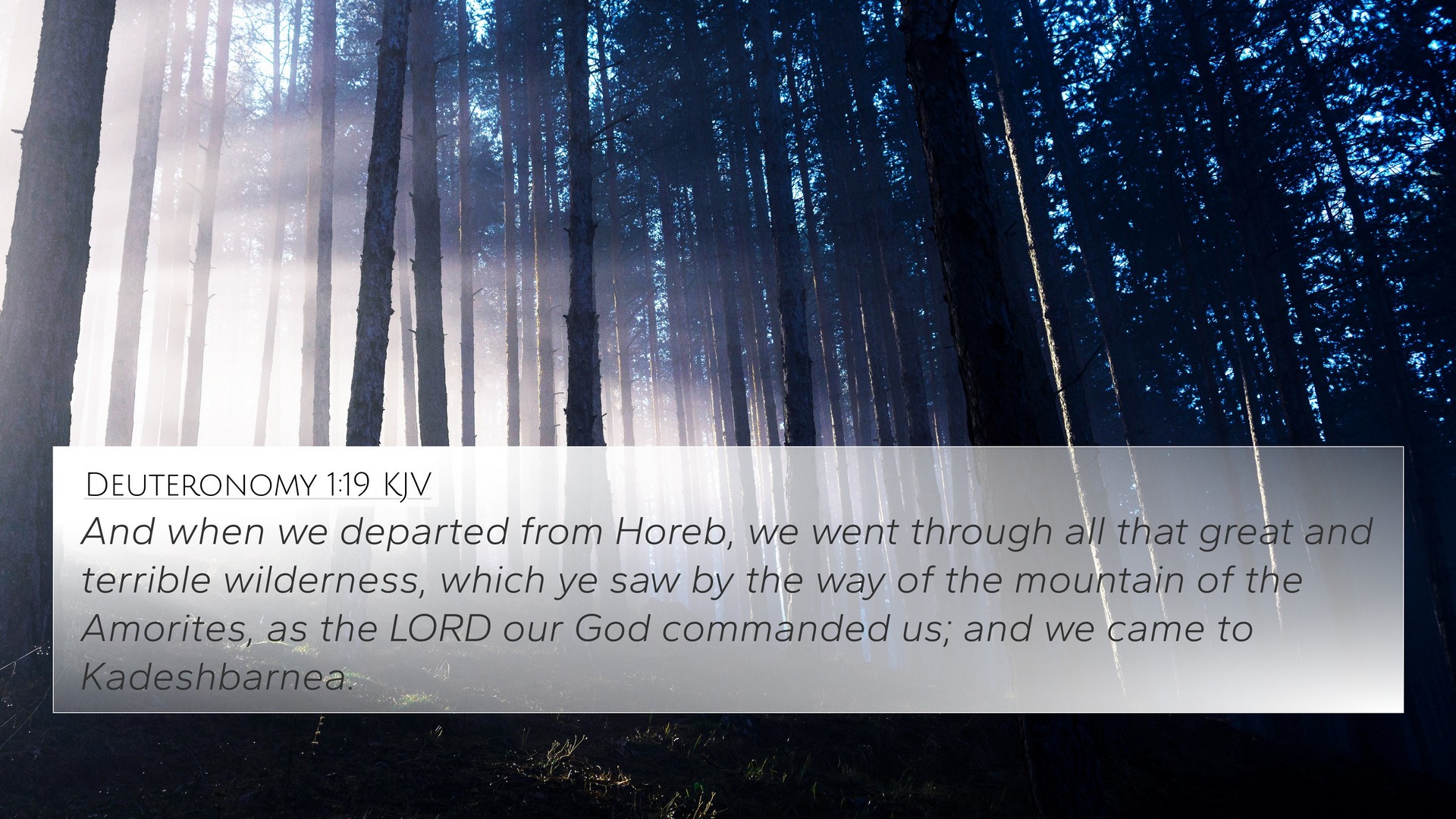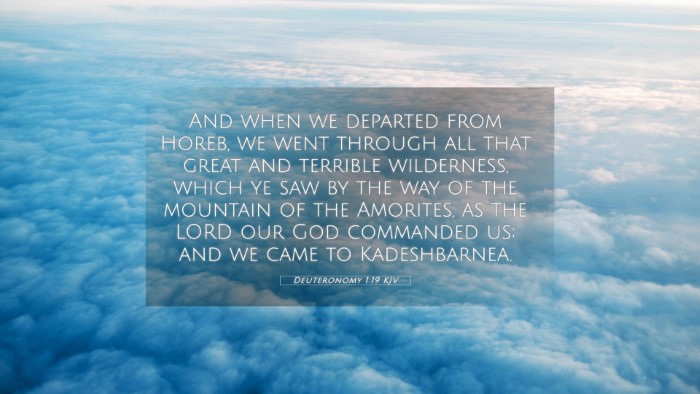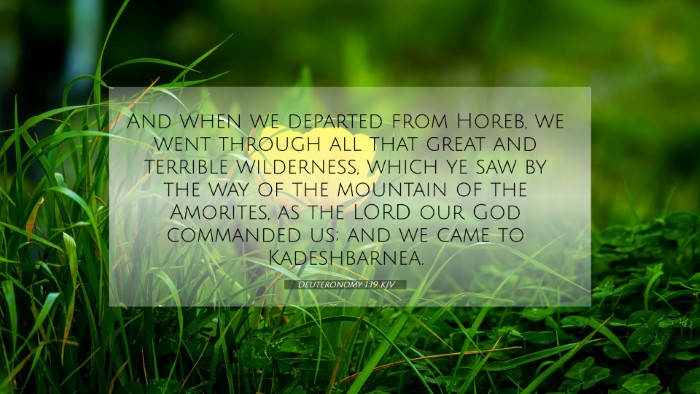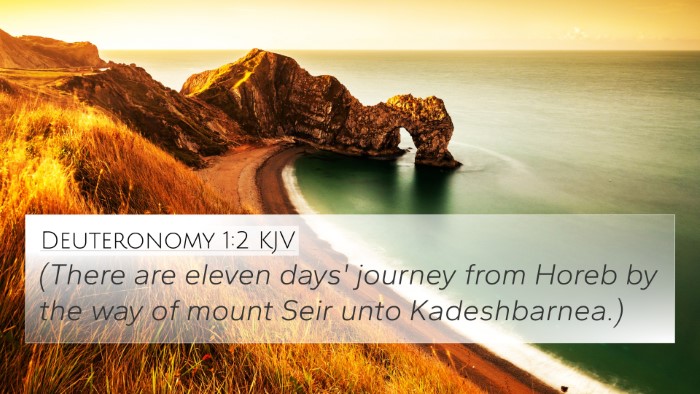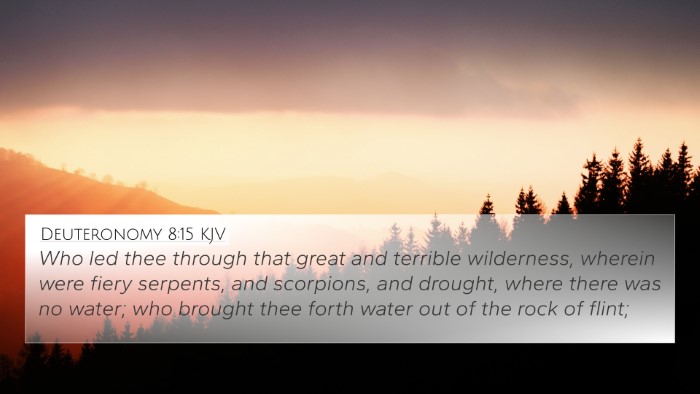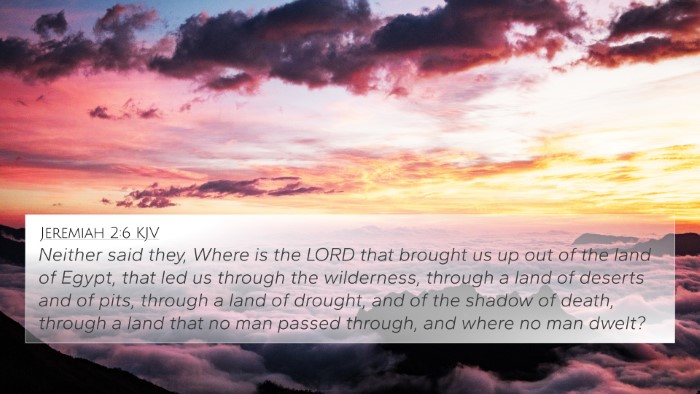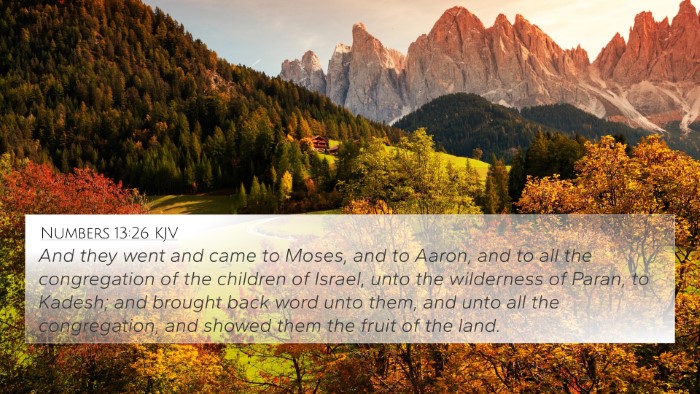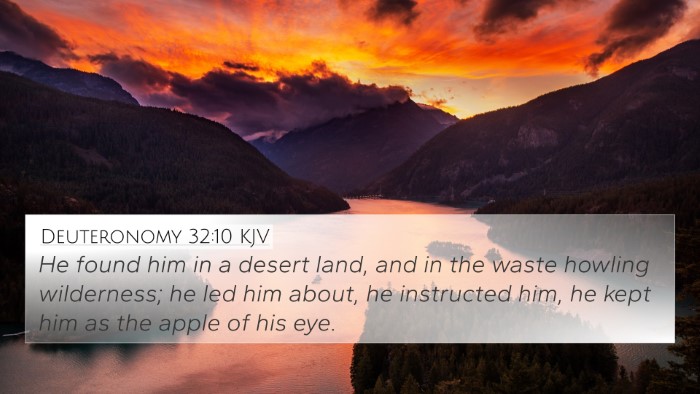Understanding Deuteronomy 1:19
Deuteronomy 1:19 states: "And when we departed from Horeb, we went through all that great and terrible wilderness, which ye saw by the way of the mountain of the Amorites, as the Lord our God commanded us; and we came to Kadeshbarnea."
Summary of Meaning
This verse marks a pivotal moment in the history of the Israelites, describing their departure from Horeb and the beginning of their journey through the wilderness to the Promised Land. The verse emphasizes themes of obedience, divine guidance, and the daunting nature of the wilderness experienced by the Israelites.
Insights from Public Domain Commentaries
Matthew Henry's Commentary
Matthew Henry highlights the significance of Horeb, where the Israelites received the law, and points out that their journey through the wilderness was both a test of God's faithfulness and the people's obedience. He notes that this wilderness was "great and terrible," symbolizing the trials and challenges believers face during their spiritual journey.
Albert Barnes' Notes
Albert Barnes elaborates on the concept of divine command in this verse, illustrating how the Israelites followed God’s directive to leave Horeb. He stresses that Kadeshbarnea represents a crucial decision point for the Israelites, and acknowledges the fearsome nature of the wilderness, encouraging reflection on the spiritual implications of following God's path despite obstacles.
Adam Clarke's Commentary
Adam Clarke provides insight into the geographical and historical context of this verse, explaining that the wilderness was not just a physical challenge, but a metaphor for spiritual testing. He notes how the Israelites' experience serves as a lesson for subsequent generations about reliance on God and the importance of faith in navigating life's uncertainties.
Connections to Other Scriptures
- Exodus 3:18 - Reflects God's command regarding the journey out of Egypt.
- Numbers 13:26 - Describes the spies reporting back from Kadeshbarnea.
- Deuteronomy 8:15 - Mentions the wilderness as a place of testing and humility.
- Isaiah 40:3 - Refers to preparing a way in the wilderness, linking to themes of guidance and preparation.
- Hebrews 3:16-19 - Discusses the disbelief of the Israelites during their journey, paralleling the narrative of obedience.
- Psalms 78:40-41 - Chronicles Israel's rebellion in the wilderness, connecting to their journey's challenges.
- Joshua 5:6 - Describes the Israelites' journey after leaving the wilderness and entering the Promised Land.
Thematic Bible Verse Connections
This verse connects profoundly to several theological themes prevalent in the Bible:
- Faith and Obedience: The necessity of following God's command, reflecting on how faith drives the journey through adversity.
- God's Guidance: The assurance of God leading His people, despite the unknowns of the wilderness.
- Trials and Testing: The wilderness symbolizes life’s challenges and our reliance on divine providence.
Cross-Referencing Biblical Texts
Each of these cross-references provides a deeper understanding of Deuteronomy 1:19 and illustrates the interconnectedness of Scripture:
- Genesis 12:1 - The call of Abraham, which sets a precedent for the journey of faith.
- Exodus 15:22 - The Israelites' initial encounter with the wilderness after leaving Egypt.
- 1 Corinthians 10:1-4 - A reflection on the experiences of Israel as spiritual lessons for Christians.
- Romans 15:4 - The importance of scriptures, such as those relating to Israel's journey, for teaching and hope.
Conclusion
In exploring Deuteronomy 1:19, we see a rich tapestry of obedience, divine command, and the daunting yet necessary journey through life's wilderness. It encourages believers to reflect on their spiritual paths, the courage needed to face challenges, and the unyielding guidance of God.
